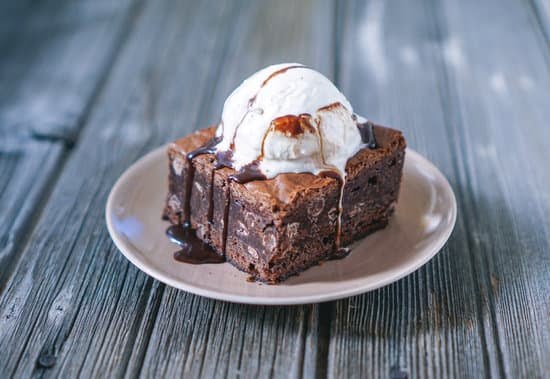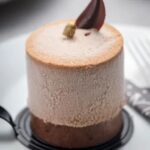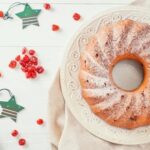Are you ready to take your holiday baking to the next level? Christmas cake decorating is a delightful way to add festive flair to your baked creations. Whether you’re a seasoned baker or just starting out, there are endless possibilities for creating stunning and delicious Christmas cakes. From classic designs to modern twists, this article will guide you through the art of Christmas cake decorating, providing essential tools, step-by-step instructions, creative ideas, and helpful tips.
When it comes to Christmas cake decorating, having the right tools and materials is essential for achieving professional-looking results. From piping bags and tips to edible decorations and embellishments, we’ll explore everything you need to create visually stunning and delicious holiday treats.
In the following sections, we’ll delve into the step-by-step process of baking the perfect Christmas cake, different types of frosting and icing options for decorating, as well as creative ideas and themes that will inspire your own personalized creations. Plus, we’ll share expert tips for using fondant and gum paste in your designs, as well as showcasing your finished masterpieces with presentation and display ideas that will impress your family and friends.
Let’s get started on our journey into the wonderful world of Christmas cake decorating.
Essential Tools and Materials for Christmas Cake Decorating
Christmas cake decorating is a fun and festive way to bring the holiday spirit to your dessert table. To create beautiful and delicious Christmas cakes, it’s important to have the right tools and materials on hand. Whether you’re a beginner or an experienced baker, having the essential supplies will make the decorating process much easier and more enjoyable.
Basic Tools
To start with, every cake decorator needs basic tools such as offset spatulas, bench scrapers, piping bags, and tips in various sizes. These tools are essential for smoothing frosting, creating texture, and piping decorations onto your Christmas cakes.
Specialty Materials
In addition to basic tools, there are also specialty materials that are commonly used in Christmas cake decorating. This includes edible glitter, shimmer dusts, sprinkles, and non-toxic food pens for writing messages or drawing designs on your cakes.
Cake Decorating Kits
Investing in a quality cake decorating kit can also be extremely helpful when it comes to creating beautifully decorated Christmas cakes. These kits often include a variety of decorating tips, icing bags, and other essential tools all in one convenient package.
By ensuring that you have the necessary tools and materials for Christmas cake decorating at your disposal, you’ll be well-prepared to create stunning desserts that will impress your friends and family during the holiday season.
Step-by-Step Guide to Baking the Perfect Christmas Cake
Baking the perfect Christmas cake is an essential part of the holiday season. Whether you are a beginner or an experienced baker, following a step-by-step guide can help you create a delicious and visually stunning centerpiece for your holiday celebrations. To ensure that your Christmas cake turns out perfectly, here is a simple guide to help you through the process.
- Gather Your Ingredients: The first step in baking the perfect Christmas cake is gathering all the necessary ingredients. This includes flour, sugar, eggs, butter, dried fruits, nuts, spices, and alcohol such as brandy or rum. Make sure to use high-quality ingredients for the best results.
- Prepare Your Fruits and Nuts: If your recipe calls for soaked fruits and nuts, it’s important to prepare them ahead of time. Soaking these ingredients in alcohol helps to infuse them with flavor and keep the cake moist.
- Mix and Bake: Once all your ingredients are prepared, follow your chosen recipe’s instructions for mixing the batter. Be sure to line your cake tin with parchment paper to prevent sticking. Bake your Christmas cake according to the specified time and temperature in the recipe.
By following this step-by-step guide, you can bake a delicious Christmas cake that will be ready for decorating. Once cooled, you can move on to the next stage of creating a beautifully decorated Christmas masterpiece.
Remember that baking a Christmas cake takes time and patience, but the end result will be worth it. With these steps in mind, you can start on your journey towards mastering the art of christmas cake decorating.
Types of Frosting and Icing for Christmas Cake Decorating
When it comes to Christmas cake decorating, the type of frosting and icing you choose can make a big difference in the overall look and taste of your creation. There are several options to consider, each with its own unique characteristics and techniques for application.
One popular choice for Christmas cake decorating is royal icing. This type of icing is made from powdered sugar, egg whites, and flavoring, and dries to a hard, smooth finish. Royal icing is often used to create intricate designs and decorations on Christmas cakes, such as snowflakes, holly leaves, or festive borders.
Another option is buttercream frosting, which is known for its rich and creamy texture. Buttercream can be easily colored and piped into decorative patterns, making it a versatile choice for Christmas cake decorating. It also pairs well with a variety of cake flavors, from classic vanilla to indulgent chocolate.
For those who prefer a more modern look, fondant icing offers a smooth and polished finish that can be molded and shaped into almost any design imaginable. Fondant is perfect for creating realistic 3D decorations like miniature presents, Santa figures, or winter scenes on top of your Christmas cake.
In addition to these traditional options, there are also variations such as cream cheese frosting or ganache that can add unique flavors and textures to your Christmas cake. Whichever type of frosting or icing you choose for your holiday baking project, the key is to have fun experimenting with different techniques and designs that will delight your family and friends during the festive season.
| Type of Frosting/Icing | Description |
|---|---|
| Royal Icing | Made from powdered sugar, egg whites, dries hard for intricate designs |
| Buttercream Frosting | Rich and creamy texture that can be easily colored and piped into decorative patterns |
| Fondant Icing | Offers a smooth finish that can be molded into realistic 3D decorations |
Creative Christmas Cake Decorating Ideas and Themes
When it comes to Christmas cake decorating, the possibilities are endless. From traditional to modern, there are countless creative ideas and themes to explore when decorating your holiday cake.
Traditional Christmas Themes
For a classic look, consider decorating your Christmas cake with traditional symbols of the season. This could include holly and berries, candy canes, snowflakes, or a festive wreath. These timeless decorations are sure to bring a touch of nostalgia to your holiday celebrations.
Winter Wonderland
Embrace the beauty of the winter season by decorating your Christmas cake with a winter wonderland theme. Use white frosting and edible glitter to create a snowy effect, and add in snowmen, penguins, or polar bears for an adorable touch. Silver and blue decorations can also evoke the serene feeling of a winter landscape.
Christmas Characters
Bring some fun and whimsy to your Christmas cake by featuring beloved holiday characters such as Santa Claus, Rudolph the Red-Nosed Reindeer, Frosty the Snowman, or even the Grinch. You can use figurines made from fondant or gum paste to bring these characters to life on top of your cake.
Whether you stick with traditions or venture into more modern and playful themes, Christmas cake decorating is all about spreading joy and cheer during the holiday season. Let your imagination run wild as you come up with unique ideas for decorating your festive confection.
Tips for Using Fondant and Gum Paste in Christmas Cake Decorating
When it comes to Christmas cake decorating, using fondant and gum paste can add an extra layer of creativity and sophistication to your creations. Fondant is a versatile sugar dough that can be rolled out and draped over cakes for a smooth, polished finish, while gum paste is a pliable sugar paste that can be molded into intricate shapes and decorations. Here are some tips for using fondant and gum paste in your Christmas cake decorating endeavors.
First and foremost, it’s important to properly prepare your cake before applying fondant or gum paste. Make sure your cake is level and smooth, with a thin layer of buttercream or jam to help the fondant adhere. It’s also helpful to lightly dust your work surface with powdered sugar or cornstarch to prevent sticking when rolling out the fondant or gum paste.
When working with fondant, knead it until it’s smooth and pliable, then roll it out to the desired thickness using a rolling pin. Carefully drape the fondant over the cake, using smoothing tools to eliminate any air bubbles or wrinkles. For gum paste decorations, make sure to keep unused portions covered with plastic wrap to prevent drying out while you work on other elements.
Another important tip for working with fondant and gum paste is to have the right tools on hand. A sharp knife or pizza cutter can help trim excess fondant from the base of the cake, while small cutters and molds can create beautiful shapes and designs for your Christmas cake decorations.
| Tips for Using Fondant | And Gum Paste in Christmas Cake Decorating |
|---|---|
| Properly prepare your cake | Have the right tools on hand |
| Knead the fondant until smooth | Carefully drape the fondant over the cake |
| Create beautiful shapes with small cutters and molds |
Edible Decorations and Garnishes for Christmas Cakes
When it comes to Christmas cake decorating, the use of edible decorations and garnishes can take your creations to a whole new level. Adding festive and edible elements to your cakes not only enhances their appearance but also adds delightful flavors and textures that will impress your guests.
One of the most popular edible decorations for Christmas cakes is the use of fresh berries and fruits. Berries like strawberries, raspberries, and blueberries can add a pop of color to your cake, while slices of oranges or mandarins can bring a refreshing citrus flavor. Pomegranate arils are also a festive addition, adding both sweetness and crunch to your cake.
Another classic addition to Christmas cakes is the use of nuts. Whether it’s toasted almonds, pecans, or walnuts, incorporating these crunchy delights into your cake design can provide a delightful contrast in texture. Additionally, candied nuts make for a sweet and flavorful topping that pairs perfectly with the rich flavors of Christmas fruitcakes.
For a more elegant touch, consider using edible flowers as decorations for your Christmas cake. Flowers like poinsettias or holly are perfect for adding a sophisticated and festive flair to your dessert. Just be sure to select flowers that are safe for consumption and thoroughly wash them before use in order to avoid any potential contamination.
In summary, decorating Christmas cakes with edible elements is not only visually appealing but also adds depth of flavor and texture to your creations. From fresh fruits to nuts and even edible flowers, there are endless options for creating stunning and delicious designs that will leave a lasting impression on everyone who indulges in your delectable holiday treats.
Showcasing Your Christmas Cake
When it comes to showcasing your beautifully decorated Christmas cake, presentation and display play a crucial role in making your creation even more festive and appealing. Whether you’re hosting a holiday party or simply want to impress your friends and family, here are some creative ideas to showcase your Christmas cake:
1. Cake Stands: Invest in a decorative cake stand that complements the theme of your Christmas cake. Whether it’s a classic silver stand, a modern marble one, or a festive red or green pedestal, the right cake stand can elevate the presentation of your dessert.
2. Holiday Accents: Enhance the festive look of your Christmas cake by adding holiday accents around the display area. Consider using faux snow, pinecones, holly leaves, or mini ornaments to create a winter wonderland vibe around the cake.
3. Lighting: The right lighting can make your Christmas cake the centerpiece of your holiday table. Consider placing fairy lights or small LED candles around the display area to add a warm and inviting glow to your dessert.
4. Personalized Toppers: Add a personal touch to your Christmas cake by creating custom-made toppers. Whether it’s a traditional “Merry Christmas” message, miniature figurines, or edible sugar decorations in the shape of snowflakes or reindeer, a unique topper can instantly elevate the look of your cake.
5. Dessert Buffet: If you’re serving multiple desserts at your holiday gathering, consider creating a dessert buffet with your Christmas cake as the star attraction. Display it alongside other festive treats such as cookies, cupcakes, and candies for an impressive spread.
By incorporating these presentation and display ideas into your Christmas cake decorating plans, you can ensure that your masterpiece will be the talk of the holiday season. With attention to detail and creativity, you can spread holiday cheer with a beautifully showcased Christmas cake that will delight all who see it.
Conclusion
In conclusion, Christmas cake decorating is a fun and creative way to spread holiday cheer and add a festive touch to your dessert table. By using essential tools and materials, following a step-by-step guide for baking the perfect Christmas cake, exploring various types of frosting and icing, and incorporating creative ideas and themes, you can create stunning cakes that will be the centerpiece of your holiday celebrations.
Whether you use fondant, gum paste, or edible decorations and garnishes, there are countless ways to showcase your creativity and bring joy to your family and friends.
As you dive into the world of Christmas cake decorating, remember that presentation and display are key in making your creations truly stand out. Whether it’s a traditional design with holly berries and snowflakes or a more modern approach with geometric patterns and metallic accents, the way you present your Christmas cake can truly elevate the overall festive atmosphere. Don’t be afraid to experiment with different techniques and styles to find what works best for you.
So as the holiday season approaches, take some time to unleash your creativity with Christmas cake decorating. The joy of seeing loved ones admire your beautifully decorated cakes will surely warm your heart and spread holiday cheer. Whether you’re an experienced baker or just starting out, there’s no better time than now to start planning your Christmas cake designs. Let this tradition become a cherished part of your holiday celebrations for years to come.
Frequently Asked Questions
What Is the Easiest Way to Decorate a Christmas Cake?
The easiest way to decorate a Christmas cake is to use ready-made decorations such as edible figurines, sugar snowflakes, or pre-made fondant shapes. You can simply place them on top of the cake for an instant festive touch.
What Do You Put on Top of a Christmas Cake?
There are many options for what to put on top of a Christmas cake. Some popular choices include royal icing, marzipan fruits, sugared berries, or even a dusting of edible glitter for some extra sparkle. It all depends on your personal preference and the overall theme of the cake.
How Long Before Christmas Should I Decorate My Cake?
It is best to decorate your Christmas cake at least a few days before the holiday itself. This allows enough time for any royal icing or fondant decorations to set and dry properly. It also gives the flavors in the cake and any alcohol used to mature and meld together, resulting in a more delicious final product on Christmas Day.

Welcome to our cake decorating blog! My name is Destiny Flores, and I am the proud owner of a cake decorating business named Cake Karma. Our mission is to provide delicious, beautiful cakes for all occasions. We specialize in creating custom cakes that are tailored specifically to each customer’s individual needs and tastes.





